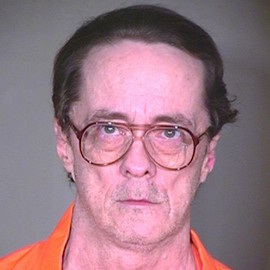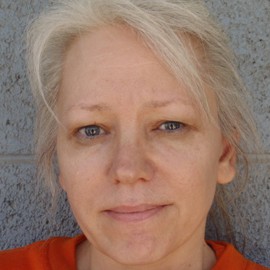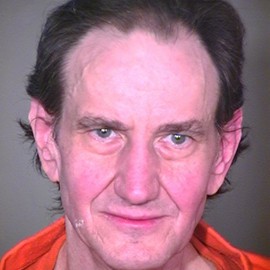Cronkite News has moved to a new home at cronkitenews.azpbs.org. Use this site to search archives from 2011 to May 2015. You can search the new site for current stories.
Appeals court denies new hearing to man convicted in boy’s murder
WASHINGTON – A federal appeals court Wednesday rejected convicted child killer Roger Scott’s request for a new sentencing hearing based on his claim that he did not have adequate representation at trial.
Scott, 64, was sentenced to death for his part in the 1989 murder of 4-year-old Maricopa County youth Christopher Milke, which Scott helped plan and attempted to cover up.
A three-judge panel of the 9th U.S. Circuit Court of Appeals said Wednesday that Scott’s claims of mental impairments would have made little difference in his defense, even if his attorney had raised them at the trial. Scott had argued that his attorney’s failure to raise them as a defense entitled him to a new sentencing hearing.
Scott’s current attorney said she “certainly” plans to continue the appeal process.
“The first step we’re going to take is to file for a rehearing to the panel,” said Jennifer Garcia, an attorney with the Federal Public Defenders Office representing Scott.
Scott can ask for a rehearing before the full circuit court and, if that is denied, he can pursue an appeal to the U.S. Supreme Court. Neither hearing is guaranteed.
The case began in late 1989, when Scott was recruited by Christopher’s mother, Debra Milke, and her roommate James Styers to help in the murder of the boy, on whom Milke had taken out a life insurance policy. Milke and Styers promised to pay Scott $250 from the insurance money for aiding in the murder, according to court documents.
On Dec. 2, 1989, Scott and Styers drove Christopher out to the desert, telling the boy that they were going to look for snakes. Scott dropped Styers and Christopher off and drove away until hearing three gunshots, indicating Styers had killed the boy.
Scott turned around and picked up Styers and the two drove to the Metrocenter Mall in Phoenix, where they split up. Scott hid the gun and Styers’ bloodstained shoes in some bushes outside the Sears. Styers, meanwhile, told a Sears employee that Christopher had gone missing in the store, in an attempt to cover up the murder.
The next day, Scott confessed his role in the planning, kidnapping and murder of Christopher, the court opinion said. He led police to Christopher’s body, the gun used to kill him, which he had since hidden in his closet, and the bloody shoes worn by Styers the day before.
Scott, Styers and Milke were convicted in separate trials. All three have been sentenced to death.
On appeal, Scott presented two doctors who testified that he had “multiple neurological deficiencies” that would have affected his behavior and likely were present when the crime was committed. Scott said that evidence should have been presented at his trial.
A lower court disagreed and the appeals court Wednesday upheld the lower court decision. The appellate judges said that there was no evidence that the brain-impairment defense would have been more successful – particularly given Scott’s detailed confession and decision-making role in the killing – than his trial defense that he had been duped by the other two defendants.
The attorney handling the case for the state said it would likely be at least a year before Scott’s case could work its way through the legal system and an execution date could be set.
“After the 9th Circuit Court denies relief, there are proceedings that take approximately one year before an execution and can be carried out,” said Kent Cattani, the chief criminal appeals counsel for the Arizona Attorney General’s Office.
- CNS reporter Brandon Ross contributed to this story.









